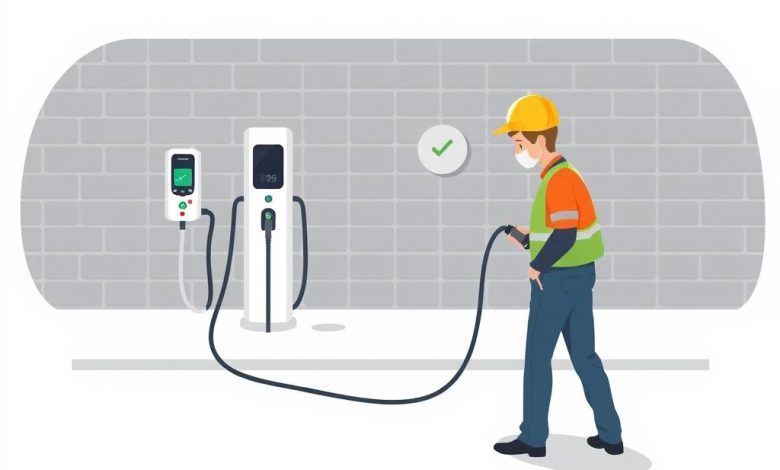Field Service Management for EV Charger Installation

Introduction
Electric vehicles (EVs) are becoming increasingly popular as governments worldwide implement policies to reduce carbon emissions and promote sustainable transportation. As the demand for electric vehicles grows, so does the need for efficient and reliable charging infrastructure. Field service management plays a crucial role in ensuring smooth installation and maintenance of EV chargers across various locations.
- The Importance of Field Service Management in EV Charger Installation
- Key Components of Field Service Management Software
- Job Scheduling and Optimization
- Mobile Workforce Management
- Inventory Management
- Customer Relationship Management (CRM)
- Reporting and Analytics
- Implementing Field Service Management for EV Charger Installation
- Case Study: Successful Implementation of Field Service Management for EV Charger Installation
- Conclusion
The Importance of Field Service Management in EV Charger Installation
Field service management refers to the process of coordinating and managing tasks related to installing, maintaining, and repairing equipment or services in the field. In the context of EV charger installation, it involves planning, scheduling, and executing the installation process efficiently. This management system helps streamline operations, improve productivity, and enhance customer satisfaction.
Benefits of Field Service Management for EV Charger Installation
- Improved scheduling efficiency
- Enhanced resource allocation
- Better communication between technicians and customers
- Increased accuracy in job estimates and completion times
- Reduced operational costs through optimized routes and minimized travel time
Key Components of Field Service Management Software
Modern field service management software typically includes several essential features:
Job Scheduling and Optimization
Field service management systems allow companies to schedule jobs efficiently based on various factors such as technician availability, job priority, and geographical location. Advanced optimization algorithms help minimize travel time and maximize productivity.
Mobile Workforce Management
Mobile workforce management enables technicians to access job details, update their status, and communicate with dispatchers directly from their mobile devices. This feature ensures real-time updates and improves response times.
Inventory Management
Proper inventory management is crucial for successful EV charger installations. Field service management software helps track equipment, parts, and supplies, ensuring that everything necessary for each job is available at the right time and place.
Customer Relationship Management (CRM)
A built-in CRM module allows companies to maintain detailed records of customer interactions, preferences, and historical data. This information can be used to personalize services and improve overall customer experience.
Reporting and Analytics
Robust reporting capabilities provide insights into operational performance, helping managers identify areas for improvement and make data-driven decisions.
Implementing Field Service Management for EV Charger Installation
Implementing a field service management system for EV charger installation involves several steps:
- Assess current processes and identify pain points
- Select appropriate software that meets specific business needs
- Train staff on new system usage
- Integrate the new system with existing workflows
- Monitor and optimize performance continuously
Challenges in Implementation
Despite the benefits, implementing a new field service management system can face challenges such as:
- Resistance to change from employees
- Integration issues with existing systems
- Initial investment costs
- Ensuring data security and privacy compliance
Case Study: Successful Implementation of Field Service Management for EV Charger Installation
Company X, a leading provider of EV charging solutions, faced significant growth and struggled to manage their increasing workload. They implemented a comprehensive field service management system and saw remarkable improvements:
- Reduced average job completion time by 25%
- Improved first-time fix rate from 70% to 85%
- Decreased operational costs by 15%
- Enhanced customer satisfaction scores by 30%
Conclusion
Field service management plays a vital role in optimizing EV charger installation processes. By leveraging advanced technology and efficient practices, companies can ensure smooth execution of installations, improve customer satisfaction, and contribute to the widespread adoption of electric vehicles.
As the demand for EVs continues to grow, the importance of effective field service management in the EV charging industry will become increasingly critical. Companies that invest in robust field service management systems will be better positioned to meet the challenges of scaling up their operations while maintaining high standards of quality and customer service.



